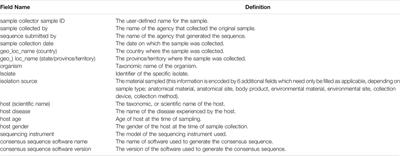EDITORIAL
Published on 29 Nov 2022
Editorial: COVID-19 pandemics: Ethical, legal and social issues
- 3,677 views
- 2 citations
43k
Total downloads
1.89m
Total views and downloads
Select the journal/section where you want your idea to be submitted:
EDITORIAL
Published on 29 Nov 2022
POLICY AND PRACTICE REVIEWS
Published on 24 Mar 2022

ORIGINAL RESEARCH
Published on 02 Mar 2022

ORIGINAL RESEARCH
Published on 14 Dec 2021

OPINION
Published on 10 Dec 2021

ORIGINAL RESEARCH
Published on 11 Nov 2021

ORIGINAL RESEARCH
Published on 10 Nov 2021

BRIEF RESEARCH REPORT
Published on 02 Nov 2021

ORIGINAL RESEARCH
Published on 13 Oct 2021

ORIGINAL RESEARCH
Published on 12 Oct 2021

OPINION
Published on 05 Oct 2021
ORIGINAL RESEARCH
Published on 23 Sep 2021


Frontiers in Medicine
Infectious Diseases – Surveillance, Prevention and TreatmentOffline
Frontiers in Pharmacology
Frontiers in Public Health
Infectious Diseases – Surveillance, Prevention and TreatmentOffline